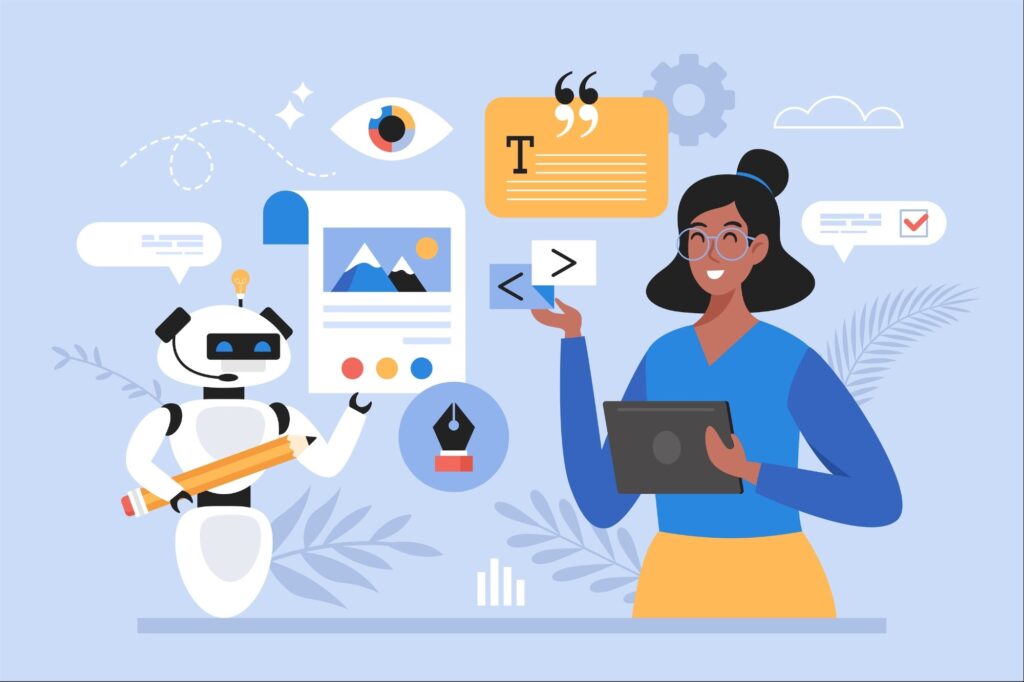Since its launch in November 2022, ChatGPT has changed the way people write emails, manage their social media accounts, and generate code. Now, a new report from ChatGPT-maker OpenAI is giving fresh insight into how people are really using the chatbot.
OpenAI’s researchers published a 64-page study on Monday with the National Bureau of Economic Research (NBER) that found nearly 80% of all conversations with ChatGPT were concerned with three categories: practical guidance, seeking information, and writing help. The study, which was based on more than one-and-a-half million ChatGPT messages sent from May 2024 to July 2025 by 130,000 users, is the largest of its kind to date.
Here’s what it found:
Related: ChatGPT’s New Update Can Create PowerPoint Presentations and Excel Spreadsheets for You
What Are ChatGPT’s Demographics?
ChatGPT’s demographics have changed in the years since its launch.
The percentage of male users has declined from 80% in the first few months after the chatbot’s drop in late 2022 to 48% as of June 2025, which makes the chatbot’s primary user base now primarily female.
Meanwhile, nearly half of all messages sent to the chatbot since launch were sent by users under the age of 26. Gen Z is embracing AI, with a survey conducted by International Workplace Group earlier this year finding that close to two-thirds of Gen Z respondents were teaching their older colleagues how to use AI.
OpenAI also announced on Tuesday that it was creating a different version of ChatGPT for teen users under the age of 18 that prioritized teen safety.
How Are People Using ChatGPT?
The most common use case was “practical guidance,” which is defined in the report as encompassing activities, such as tutoring, teaching, how-to advice, and coming up with creative ideas.
The next most popular category involved “seeking information,” which is labeled as searching for information about people, products, and current events, like conducting a web search.
The final popular use case included writing tasks that automatically generate emails and documents, and editing text. Writing was the most common use case at work, with an average of 40% of work-related messages on ChatGPT stemming from writing queries. Most requests asked ChatGPT to look at text the user had already written instead of creating something new. In other words, two-thirds of writing messages asked ChatGPT to edit, translate, critique, or modify text instead of generating new text.
“Writing dominates work-related tasks, highlighting chatbots’ unique ability to generate digital outputs compared to traditional search engines,” the study read.
Related: ChatGPT’s Creators Are Worried We Could Get Emotionally Attached to the AI Bot, Changing ‘Social Norms’
The study also classified messages another way, using three categories based on the kind of output the user was looking for: Asking, Doing, or Expressing.
“Asking” applies to nearly half of all messages sent to the chatbot (49%), which occurs when a user seeks information about a subject or a solution to a problem. “Doing” refers to tasks where a user wants an output, especially writing activities, and applies to 40% of all messages. “Expressing,” which refers to 11% of all messages, happens when a user communicates their views or feelings without asking for any information or action.
Based on these classifications, users were more likely to use ChatGPT to find answers to questions rather than to carry out tasks or express opinions. ChatGPT users tapping into the chatbot at work were most likely to use it to seek information and find information.
“Overall, we find that information-seeking and decision support are the most common ChatGPT use cases in most jobs,” the study reads.
Related: Is Your ChatGPT Session Going On Too Long? The AI Bot Will Now Alert You to Take Breaks
Despite discussion from tech leaders like Google CEO Sundar Pichai and Nvidia CEO Jensen Huang, it seems like vibe coding is still niche. The study found that comparatively few users were tapping into ChatGPT to code; only 4.2% of messages were related to computer programming, much less than 33% of all work-related conversations with competing chatbot Claude from Anthropic.
Also, only a small percentage of users were using ChatGPT for companionship or guidance on social issues. Less than 2% of ChatGPT messages were about relationships and personal reflection, per the study.
Since its launch in November 2022, ChatGPT has changed the way people write emails, manage their social media accounts, and generate code. Now, a new report from ChatGPT-maker OpenAI is giving fresh insight into how people are really using the chatbot.
OpenAI’s researchers published a 64-page study on Monday with the National Bureau of Economic Research (NBER) that found nearly 80% of all conversations with ChatGPT were concerned with three categories: practical guidance, seeking information, and writing help. The study, which was based on more than one-and-a-half million ChatGPT messages sent from May 2024 to July 2025 by 130,000 users, is the largest of its kind to date.
Here’s what it found:
The rest of this article is locked.
Join Entrepreneur+ today for access.


